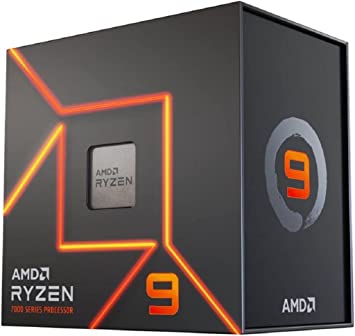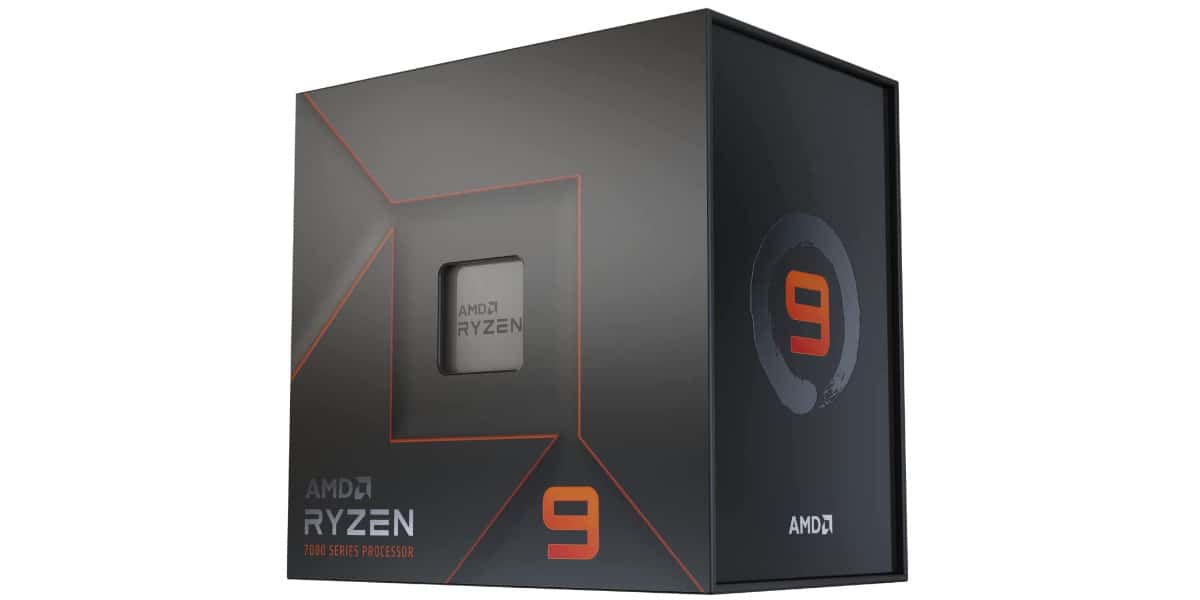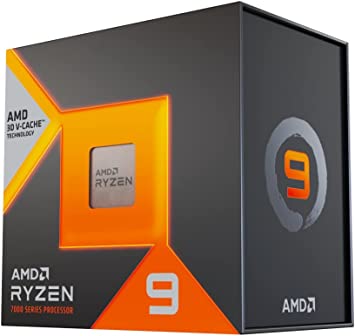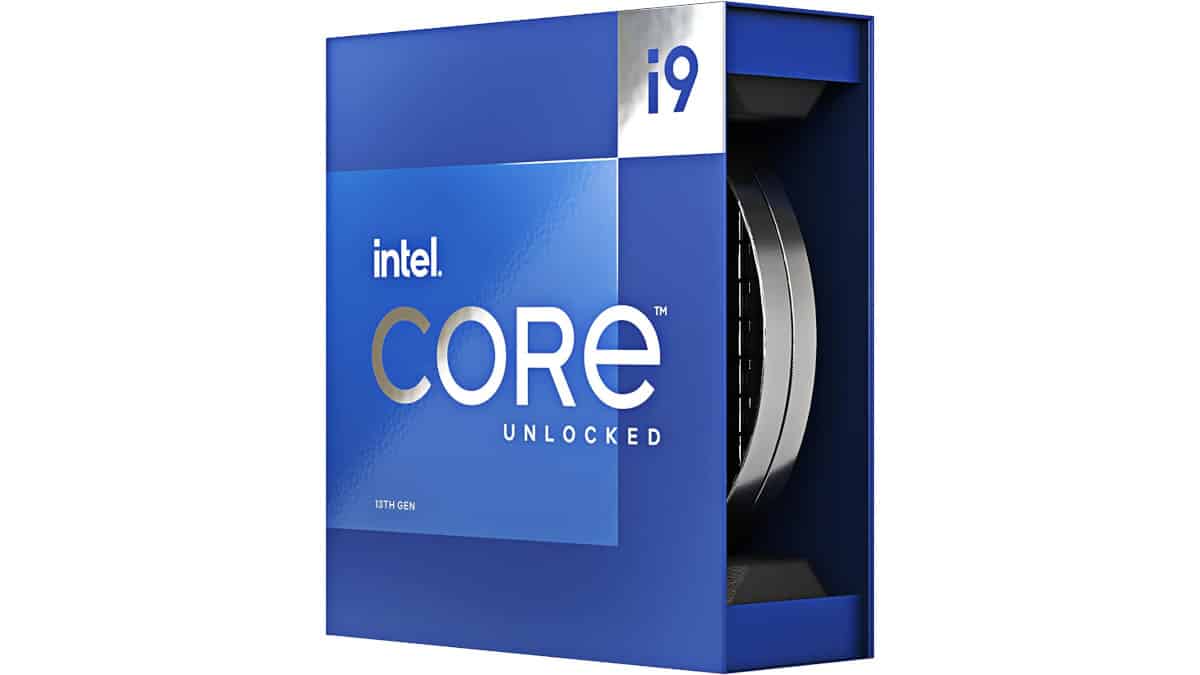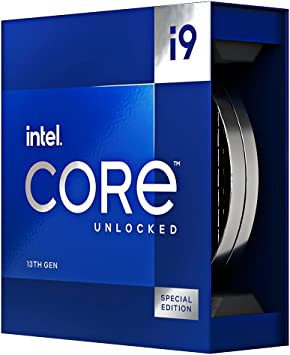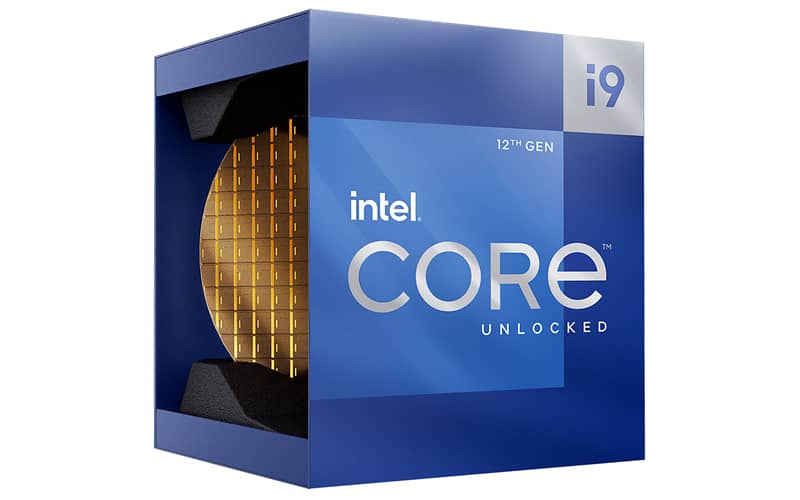Ryzen 9 9950X vs. Intel Core i9-14900K, who reigns supreme?

Table of Contents
AMD's Ryzen 9000 series was set to launch on 31st July, but it was delayed as the processors didn't meet quality expectations. The date for the Ryzen 9 9900X and 9950X was pushed to August 15th, and the fans are seemingly okay with the delay.
That said, many are still waiting in anticipation, and it’s a given that the most powerful Zen 5 processor would be put against Team Blue's flagship CPU, the i9-14900K. There are reports of the 9950X beating the 14900K in multi-core benchmarks, but we'll explore how that is possible in this article.
Prime Day is finally here! Find all the biggest tech and PC deals below.
- Sapphire 11348-03-20G Pulse AMD Radeon™ RX 9070 XT Was $779 Now $739
- AMD Ryzen 7 7800X3D 8-Core, 16-Thread Desktop Processor Was $449 Now $341
- ASUS RTX™ 5060 OC Edition Graphics Card Was $379 Now $339
- LG 77-Inch Class OLED evo AI 4K C5 Series Smart TV Was $3,696 Now $2,796
- Intel® Core™ i7-14700K New Gaming Desktop Was $320.99 Now $274
- Lexar 2TB NM1090 w/HeatSink SSD PCIe Gen5x4 NVMe M.2 Was $281.97 Now $214.98
- Apple Watch Series 10 GPS + Cellular 42mm case Smartwatch Was $499.99 Now $379.99
- ASUS ROG Strix G16 (2025) 16" FHD, RTX 5060 gaming laptop Was $1,499.99 Now $1,274.99
- Apple iPad mini (A17 Pro): Apple Intelligence Was $499.99 Now $379.99
*Prices and savings subject to change. Click through to get the current prices.
AMD Ryzen 9 9950X
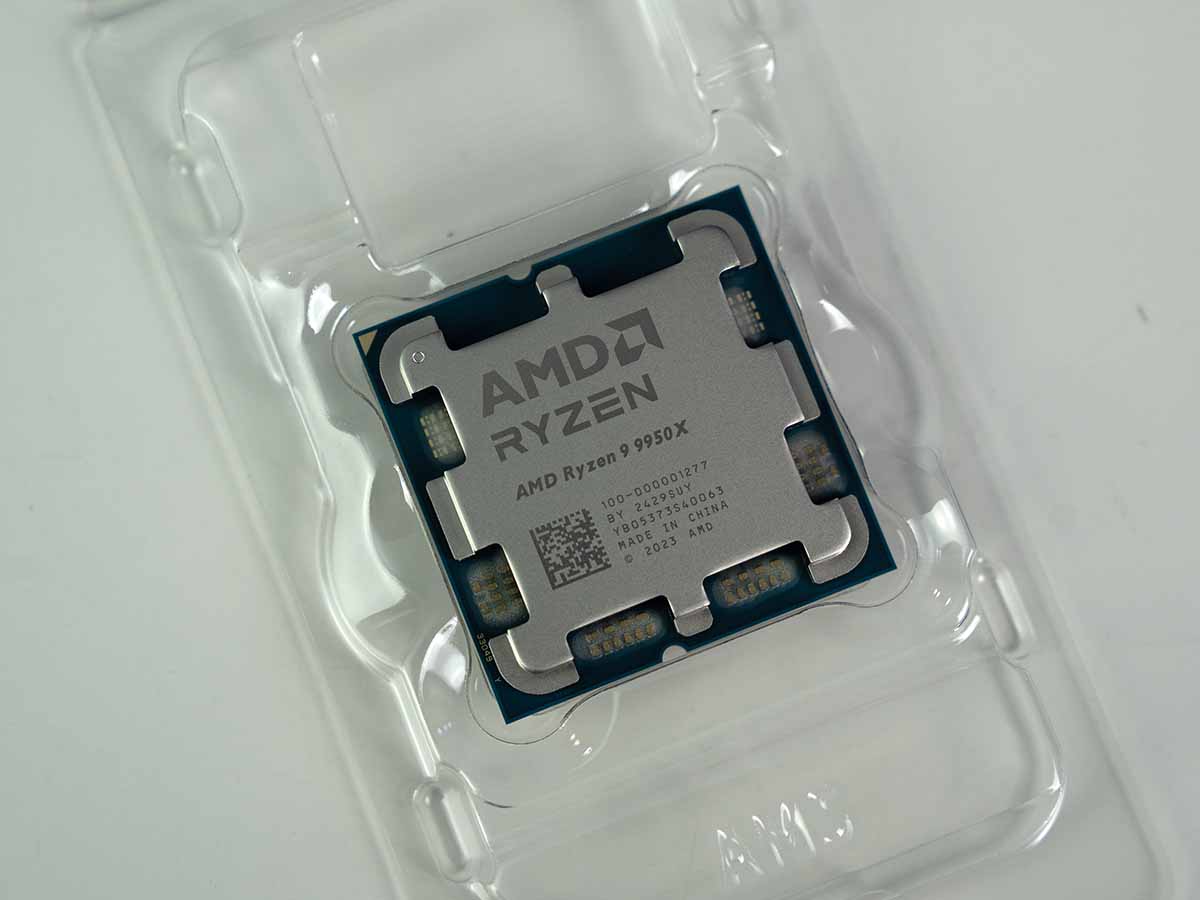
Cores
16
Threads
32
Boost clock speed
5.7 GHz
Base clock speed
4.3 GHz
L3 Cache
64 MB
TDP
170 W
Platform
AMD Socket AM5
Shop on Amazon
CHECK PRICEIntel Core i9-14900K
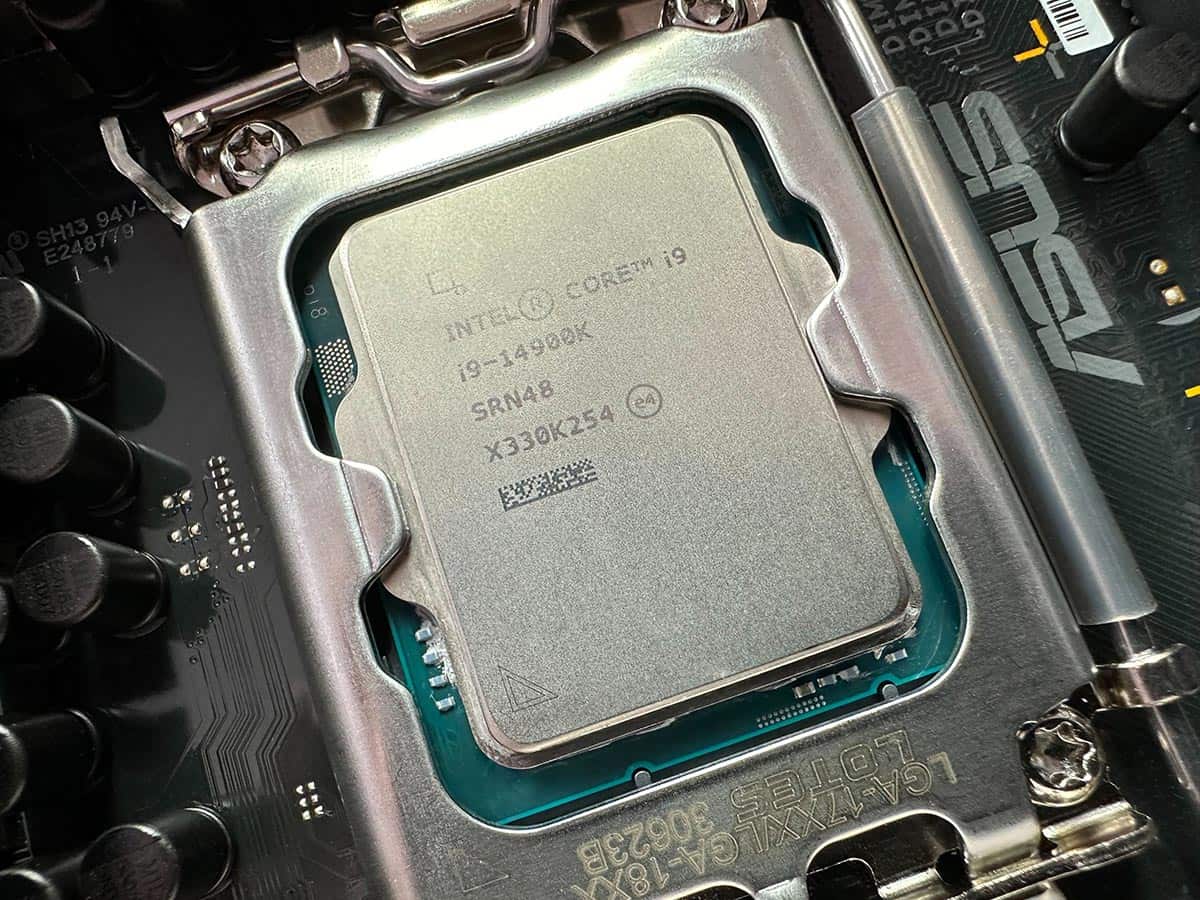
Cores
24 (8P-16E)
Threads
32
Boost clock speed
P-Core 5.8GHz / E-Core 4.4GHz
Base clock speed
P-Core 3.2GHz / E-Core 2.4GHz
L3 Cache
36 MB
TDP
253W
Platform
Intel Socket 1700
Shop on Amazon
CHECK PRICESpecification
To see the hardware difference between the two processors, we've listed their specifications below.
| Specifications | Ryzen 9 9950X | Intel Core i9-14900K |
| Architecture | Zen 5 | Raptor Lake-R |
| Socket | AM5 | LGA 1700 |
| Process | TSMC 4nm FinFET | 10 nm |
| Cores | 16 | 24 |
| Threads | 32 | 32 |
| Base clock speed | 4.3 GHz | E-core 2.4 GHz, P-core 3.2 GHz |
| Boost clock speed | 5.7 GHz | 6 GHz |
| L3 Cache | 64 MB | 36 MB |
| TDP | 170W | 125W/253W |
| Integrated graphics | AMD Radeon Graphics | Intel UHD Graphics 770 |
These processors are monsters of their respective lineups, and coming from different companies, their architecture, design, and features are vastly different. So, we'll take a close look at each section to paint a clear picture of their differences.

Foundations and cores
The first and biggest difference between the 9950X and 14900K is the foundation and the number and type of cores. The 9950X is based on AMD's latest Zen 5 architecture, which has a 16% IPC uplift over Zen 4 and uses 4nm CPU process technology.

On the other hand, the 14900K has 10nm process technology and is a refresh of Raptor Lake, the 13th-generation architecture. The 6nm difference in CPU technology is massive, and even though the 14900K has 8 more cores, the 9950X is more efficient and can execute more instructions per second than the 14900K.
In addition, Intel's champion has the cores divided into 8 performance and 16 efficient cores, which divide the workload based on its intensity. While 16 E-cores should give the 14900K a better energy-efficiency stance, bigger transistors require more power, and the 9950X is the overall winner in this battle.
Clock speed
The clock speed comparison isn't as straightforward because of Intel's big.Little CPU design that divides the cores into P- and E- cores. The E-core base frequency is 2.4 GHz, while the P-core base frequency is 3.2 GHz.
So, the 9950X has a higher base frequency of 4.3 GHz, meaning it can execute 1.9 and 1.1 billion more instructions, respectively. However, it has a boost clock of 5.7 GHz while the maximum frequency of 14900K's P-core is 5.6 GHz, which can be increased to 6 GHz.
So, if you're familiar with overclocking and have the tools at your disposal, you can take it up to that level, but even then, the difference will only be 0.3 GHz. Taking into account the Zen 5 architecture and its increased processing power, the 9950X can make better use of its cores than the 14900K.
Cache and TDP
The Ryzen 9 9950X has a 64 MB L3 cache, while the 14900K has a 36 MB Intel Smart Cache. What this means is that it is accessible by all the cores, making processing faster and more efficient.
That said, the 9950X has a higher cache capacity, and the entire 9000 series cache underwent a rework as they doubled the bandwidth, resulting in a faster L1 and L2 cache. So, all three levels combined should give the edge to the 9950X in processing efficiency and speed.

As for the TDP, the 9950X has a 170 TDP compared to 14900K's base power of 125W. However, TDP isn't a set value, and according to Intel, it could ramp up to 253W, which is an 83W difference. So, Team Red's flagship processor is comparatively more energy-efficient, though its TDP could also increase if you overclock it.
That will also increase its thermal output, and we recommend using the best CPU cooler and thermal paste to keep it from thermal throttling.
Graphic capabilities
These processors come with integrated graphics, meaning you can boot your PC without a discrete GPU or troubleshoot it if you think your GPU suddenly died on you. The 9950X comes with AMD Radeon Graphics with two dedicated cores and a base and max frequency of 400 and 2200 MHz, respectively. That said, the 7000 series had RDNA-2-based graphics; we should see the Ryzen 9000 series with RDNA-3-based graphics.
On the other hand, 14900K comes with Intel UHD Graphics 770 with a base frequency of 300 MHz. According to Intel, you should be able to run a 4096 x 2160 resolution monitor at 60Hz with an HDMI connection. However, playing games at high resolutions isn't possible with either CPU's integrated graphics, but using basic applications like the Microsoft Office suite or playing Solitaire should be a breeze.
Potential pricing
We know that the Ryzen 9 9950X has been delayed till 15th August, and we'll have to wait for it to release to see how much it costs. However, we can use previous launches and pricing trends to make an informative guess.
For the 9950X, we'll look at the 7950X and 5950X. These CPUs were launched with an MSRP of $699 and $799, respectively. The 14900 K was launched with an MSRP of $589, but according to Camelcamelcamel, you can get it for as low as $546.25.
That said, as the release date comes closer, unsurprisingly, more price leaks have started to pop up. According to a Chinese retailer, the 9950X could have a price tag of $499, while others have listed it at $647.93 (after converting from Pesos).
Though, these are leaks so take this information with a pinch of salt and wait for the official release, or we might even see the prices a couple of days before the launch. That said, we believe a price tag of $499 puts the 9950X in a good bracket.
How have these CPUs changed from the last generation?
| Specifications | 9950X | 7950X | 5950X |
| Cores | 16 | 16 | 16 |
| Threads | 32 | 32 | 32 |
| Cache | 64 MB | 64 MB | 64 MB |
| Max boost clock | 5.7 GHz | 5.7 GHz | 4.9 GHz |
| Base clock speed | 4.3 GHz | 4.5 GHz | 3.4 GHz |
| TDP | 170W | 170W | 105W |
| Architecture | Zen 5 | Zen 4 | Zen 3 |
The first three specifications across all processors are the same, but the difference is between the architecture, TDP, and clock speeds. The 9950X and 7950X share the same 170W TDP, while the 5950X has a comparatively humble 105W TDP.
The max boost clock is shared between the first two processors, though the 7950X has a faster base clock speed. The biggest difference is the architecture, with each iteration reducing the transistor size, leading to better performance and efficiency.
We compared the 14900K to the 13900K and 12900K and saw a similar scenario with a couple of differences.
| Specifications | 14900K | 13900K | 12900K |
| Cores | 24 | 24 | 16 |
| Threads | 32 | 32 | 24 |
| Cache | 36 MB | 36 MB | 30 MB |
| Max boost clock | 6 GHz GHz | 5.8 GHz | 5.2 GHz |
| Base clock speed | E-core 2.4 GHz, P-core 3.2 GHz | E-core 2.2 GHz, P-core 3.0 GHz | E-core 2.4 GHz, P-core 3.2 GHz |
| TDP | 125W/253W | 125W/253W | 125W/241W |
| Architecture | Raptor Lake-R | Raptor Lake-S | Alder Lake |
The 14900K and 13900K have the same core count, threads, and cache, but the 12900K has lower numbers in all three aspects. On top of that, the 14th-generation flagship has the highest boost clock while their respective E- and P-core base clock speeds remained within arm’s reach of each other.
The 14900K is a refresh of the 13th-generation Raptor Lake architecture, meaning it is more or less the same CPU but with higher clock speeds.
Alternatives to the 9950X and the 14900K
There are some processors that you could opt for instead of the 9600X and the 5900XT, and we've listed them below. We've reviewed some of these alternative options, and you can also check out their in-depth reviews.
9950X alternatives
-
AMD Ryzen 9 7950X
- Cores: 16
- Threads: 32
- Boost clock speed: 5.7 GHz
- Base clock speed: 4.5 GHz
- L3 Cache: 64 MB
- TDP: 170W
-
AMD Ryzen 9 7900X
- Cores: 12
- Threads : 24
- Boost clock speed: 5.6 GHz
- Base clock speed: 4.7 GHz
- L3 Cache: 64 MB
- TDP: 170 W
-
AMD Ryzen 9 7900X3D
- Cores: 12
- Threads: 24
- Boost clock speed: 5.6 GHz
- Base clock speed: 4.4 GHz
- L3 Cache: 128MB
- TDP: 120W
14900K alternatives
-
Intel Core i9-13900K
- Cores: 24 (8P-16E)
- Threads: 32
- Boost speed : P-Core 5.8GHz / E-Core 4.3GHz
- Base speed: P-Core 3.0GHz / E-Core 2.2GHz
- L3 Cache: 36 MB
- TDP: 253 W
-
-
Intel Core i9-12900K
- Cores: 16-core (24 threads) (8P+8E)
- Base clock speed: 3.20 GHz (Performance); 2.40 GHz (Efficient)
- Boost clock speed: 5.20 GHz (Performance); 3.90 GHz (Efficient)
- Cache: 30MB
- TDP: 125W
- Max Turbo Power: 241W
Which one should you go for?
The answer to this question depends on your use case, budget, and which processor you're currently using.
The 14900K uses the LGA 1700 socket, which is due for a change as Intel's 14th-generation CPUs are most likely the last to use this socket. So, if you already have an LGA1700 motherboard and want to upgrade from a 12th-generation processor, then it might make sense to jump to the 14900K. On top of that, during our 14900K review, it had a pretty good performance, not much difference from the 13900K, but that is expected of a refresher.
However, your path to upgrade will stop there, and you'll have to purchase a new processor and its accompanying motherboard to experience better performance. On top of that, the 14900K does run very hot, and since it is a refresher, it wasn't very well accepted among the community.
The Ryzen 9 9950X is based on the latest Zen 5 architecture and is at the top of the performance hierarchy of the 9000 series. So, it shouldn't be surprising that it comes with exceptional processing power and should be capable of mowing down even the most demanding applications. It is also a good fit for data science and professionals in other fields.
That said, the AM5 is supported till 2027, so even if the upfront cost of upgrading to this platform is high, it'll be supported for years to come, and you'll have more options to upgrade to. Regardless of the processor you choose, you won't be disappointed with their performance during daily and intense use.
I reached out to my fellow hardware experts and tech enthusiasts, Jack Howarth and Seb Kozlowski, to see what they had to say about this matchup.
Both of the CPUs are flagships and designed to be the best of the best that both teams have to offer.
The Ryzen 9 9950X contains 16 cores and 32 threads, with the advantage of all the cores being “performance cores” unlike the 14900K. This Zen 5 based CPU is more efficient, with PPT rating of 230W against the 14900K’s PPT of 253W.
The 14900K has 24 cores and 32 threads at its disposal, with 16 of those cores being E-cores, clocked lower to make an overall more efficient chip. Even then, only half of them are actually multithreaded. The clock speed is greater for the P-cores in the 14900K, with the turbo clock alone reaching the 6GHz margin.
Both of these CPUs are pretty well stacked against one another. Intel has a tendency to be much more overclockable, and AMD likes to be the more power efficient model. The 14900K will likely be cheaper on launch than the 9950X, but that saving will be offset by the purchase of an LGA 1700 motherboard should you need one to run the Intel.
Both of the platforms offer around about the same features, and early benchmarks suggest that these CPUs are pretty evenly matched, Although my gut feeling tells me that the 9950X will be a little better in multi-core workloads.
If you’re building a PC from scratch, this choice comes down to preference and affordability more than anything. The 14900K is a tried and true beast, but it does have a lot of issues right now with self immolation. If it wasn’t for that, I’d be telling you that Intel is the safer bet. But I can’t.
Jack Howarth
At the top of their respective ranges, these two models offer plenty of processing power but are set up in a different way to function. As the Intel processor leads with 24 cores and is split with 8 performance and 16 efficient for a good combination of capabilities. Additionally these can reach high frequencies but does come with a rather large power requirement reaching up to 253W, so not exactly the most eco friendly choice and requiring quite a bit of cooling as well.
As for the AMD pick, it has a 16 core ability also reaching up to 5.7GHz but a default TDP of 170W. That does make it a bit more capable if the performance is up to scratch and matching too. Plus it hasn’t had the more recent problems Intel’s top CPUs have with their instability and microcode drawing too much power destroying themselves, which obviously makes it a problem to recommend anytime.
Either way they should provide great productivity performance for multi core processes and utilizing those high numbers. But neither are exactly great value for just gaming.
Seb Kozlowski



